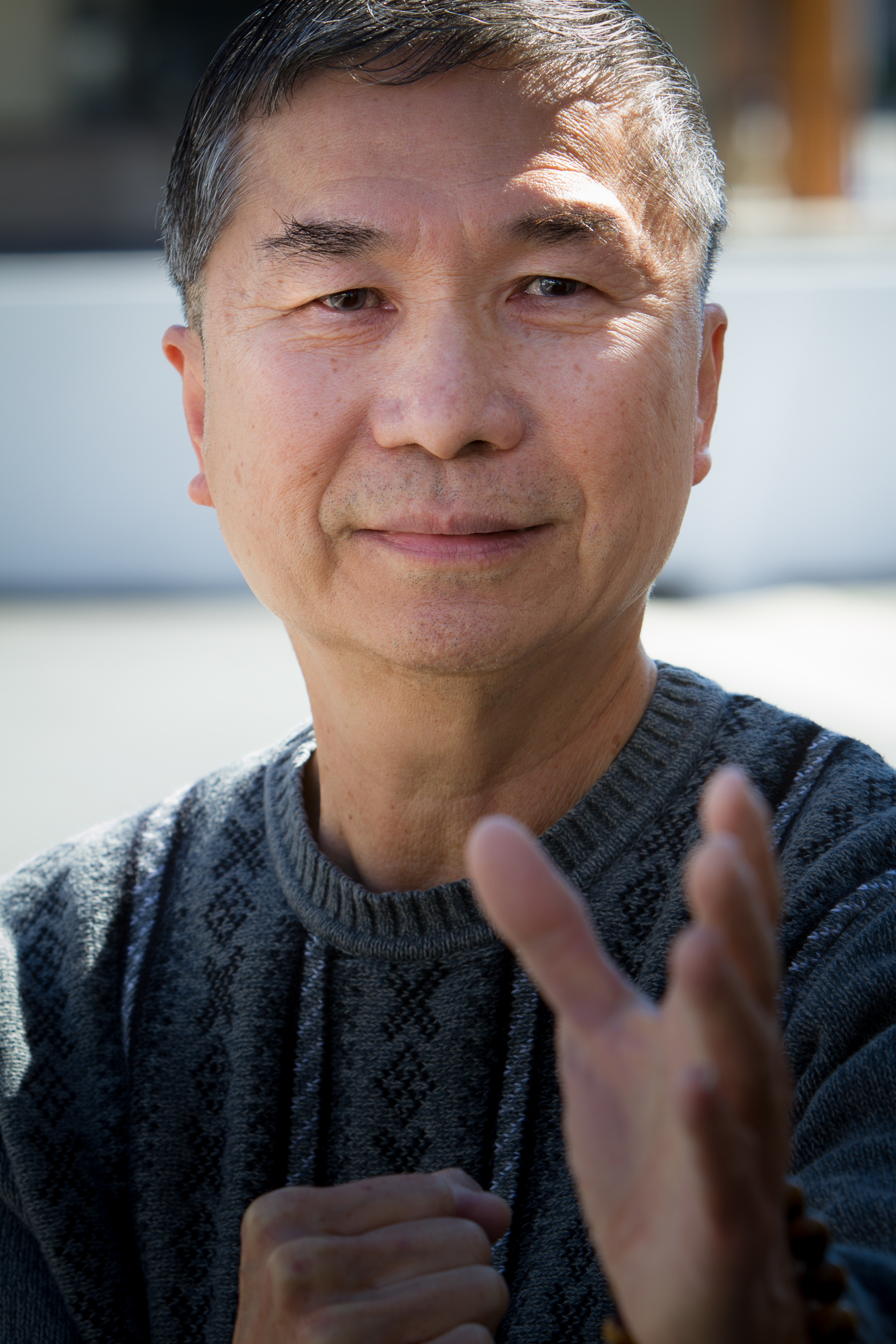You are here
 PRA: Can you give us an overview of the organization, the services the organization provides and its mission?
PRA: Can you give us an overview of the organization, the services the organization provides and its mission?
Pacific Clinics: Pacific Clinics is the largest nonprofit mental health organization in Southern California. We serve more than 18,000 underserved, low-income and homeless individuals and families each year at 70 outpatient clinics, hundreds of schools, drop-in and wellness centers, residential facilities, community organizations and individuals’ homes. Our geographic reach spans Los Angeles, San Bernardino, Orange and Ventura Counties. Pacific Clinics’ expertise is providing specialty mental health across the age-spectrum, from newborns to older adults. More than half of the people we serve each year are children, youth and families.
Pacific Clinics’ mission – Building on people's strengths, we deliver quality behavioral and mental healthcare services – reflects our organization’s person-centered and recovery-oriented appro ach. Programs and services utilize evidence-based practices to ensure effective treatment. Pacific Clinics offers a spectrum of comprehensive care, including: mental health counseling, case management, medication management, crisis intervention and integrated services of substance use disorder intervention, supportive housing and employment assistance and health navigation.
PRA: Who are the main beneficiaries of your organization? What are the primary age ranges your organization helps?
Pacific Clinics: Mental illness does not discriminate between age, race or income. Therefore, Pacific Clinics’ mission has been to provide culturally responsive behavioral healthcare to those who are most vulnerable. Pacific Clinics’ serves individuals with serious mental illness, such as schizophrenia, bi-polar and major depression. More than 90 percent of Pacific Clinics consumers are eligible for state and federal entitlement programs.
PRA: Can you describe one of your organization's proudest accomplishments over the past year?
Pacific Clinics: There are several accomplishments that we are most proud. Among them is Pacific Clinics' expansion of its newly acquired Head Start and Early Head Start programs in Altadena, Pasadena and Glendale. These programs provide comprehensive early childhood education, health, nutrition, and parent involvement services to low-income children and their families. Last year, Pacific Clinics received additional funding from both the U.S. Department of Health and Human Services and the California Department of Education to expand the number of children served through this high quality child development program.
We recently received renewed funding for our Latino Youth Program (LYP). Established more than 13 years ago through a federal grant, LYP provides prevention and early intervention services to elementary, middle and high school youth who are at-risk of gang involvement, substance abuse, suicide, and depressive/mood disorders.
In response to the statistic that people with mental illness live 25 year less than average, Pacific Clinics employs Health Navigators who help people with mental illness navigate the healthcare system, with the dual goals to help consumers achieve self-sufficiency and live longer, more fulfilling lives. Pacific Clinics is in the final year of a two-year subcontract with the USC School of Social Work (from the national Patient Centered Outcomes Research Institute) to fund research on the effectiveness of Health Navigators in helping people with serious mental illnesses and co-occurring substance abuse.
 During the past fiscal year, Pacific Clinics was named to the Hilton Foundation’s Reducing Adolescent Substance Abuse Learning Collaborative. We are one of 27 behavioral health organizations in six states working to implement a new screening and referral process called SBIRT to address substance use among adolescents receiving services for a psychiatric disorder. In January, we were invited to participate in California Community Foundation’s SBIRT Initiative Advisory Committee as one of nine community stakeholders committed to expanding use of SBIRT across Los Angeles County.
During the past fiscal year, Pacific Clinics was named to the Hilton Foundation’s Reducing Adolescent Substance Abuse Learning Collaborative. We are one of 27 behavioral health organizations in six states working to implement a new screening and referral process called SBIRT to address substance use among adolescents receiving services for a psychiatric disorder. In January, we were invited to participate in California Community Foundation’s SBIRT Initiative Advisory Committee as one of nine community stakeholders committed to expanding use of SBIRT across Los Angeles County.
PRA: What do you consider to be the biggest challenge to organizations providing the services your organization provides?
Pacific Clinics: Southern California is one of the most diverse communities in the United States. Pacific Clinics is committed to culturally-responsive care and has developed specialized services and programs for a wide variety of underserved ethnic populations to ensure they have access to, and feel comfortable receiving, the support and care they need. For example, Pacific Clinics’ Asian Pacific Family Center in Rosemead was created 20 years ago with the goal to provide advocacy and mental health services to the emerging population of Asian immigrant families in the San Gabriel Valley. Pacific Clinics’ Latino Services division has a focus on program development and educational materials for the Latino immigrant and monolingual population. In addition, Pacific Clinics provides school-based Armenian services in the City of Glendale through its Hye-Wrap program. We make every effort to hire diverse staff reflective of the individuals that we serve; many of our staff are bilingual.
Pacific Clinics' programs are primarily supported by public funding from the Los Angeles County Department of Mental Health and state children's services programs. These contracts are explicit about the populations that can be served and what services can be provided. They do not provide funds to recruit and retain staff from culturally and linguistically diverse backgrounds. They also have limited coverage of indirect expenses and supportive services (e.g., housing, basic needs) that are often vital to our clients’ recovery. As an agency driven by mission and compassion, Pacific Clinics often provides mental health services above and beyond what is covered by our contracts – whether it be serving indigent, residually insured, and homeless individuals and families or providing additional services to help clients achieve their goals. Moreover, many of our contracts operate with structural losses due to administrative caps and other unreimbursed expenses. Pacific Clinics must, therefore, rely on private foundations, corporations, and individual donors to fill the gaps.
In addition to fundraising efforts, we are actively working with private partners such as the Weingart Foundation to try and influence payment reform to address this challenge.
PRA: How many clients do you currently serve and how does your organization measure its success in terms of individuals it serves?
Pacific Clinics: Pacific Clinics serves nearly 18,000 individuals each year. All of our programs and services are supported and guided through the agency's Board of Directors, a consumer-run quality assurance board (QAB) and a board of concerned and dedicated family members (F.A.C.E.S.) that ensure programs and services are culturally-responsive, consumer-driven and collaborative.
Pacific Clinics monitors consumer outcomes in several areas in order to measure the effectiveness and efficiency of our program services and to evaluate consumers’ progress in their recovery. Outcomes measurement also assists in determining if the needs of consumers are being met in various areas of their life. For Transitional Age Youth, Adult and Older Adult clients, the agency measures employment indicators, including: employment status and type of work; health indicators (e.g., access to primary care); and substance use activity. In addition, depending on the program type, population served or funder requirements, we conduct multiple pre- and post-tests for screening, treatment planning, and monitoring treatment. Within the children’s programs, outcome measures are often completed as requirements of evidence-based practices. In addition, for school-based programs, we measure academic performance outcomes such as grades and attendance.
Outcome measures can be delineated into subgroups by age, ethnicity and gender to determine if disparities are present and to ensure that services are adapted to meet the needs of specific populations. Outcomes are shared on a regular basis with stakeholders, including: clients and family members, the Board of Directors, the Quality Assurance Board, funders and community partners for use in program development and evaluation.
PRA: How do you envision the future of your organization evolving to meet current and future needs?
Pacific Clinics: Pacific Clinics is well-positioned to continue its leadership role in the field of mental and behavioral healthcare in Southern California. We have strong relationships with government and private funders; a unique capacity to provide comprehensive behavioral health and supportive services across the age span for an ethnically and culturally diverse client base; and a well-trained and culturally-responsive workforce. In next few years, we will focus on building on our agency’s strengths while also seeking out and seizing new opportunities and new lines of business that will support our financial growth and sustainability.
We will continue to be adaptable and nimble in responding to changes as a result of the implementation of managed care and the Affordable Care Act. We anticipate opportunities to introduce Pacific Clinics to communities not currently receiving services. We also foresee expanding our services to clients with minor depression, anxiety and PTSD in addition to those with severe mental illness.



